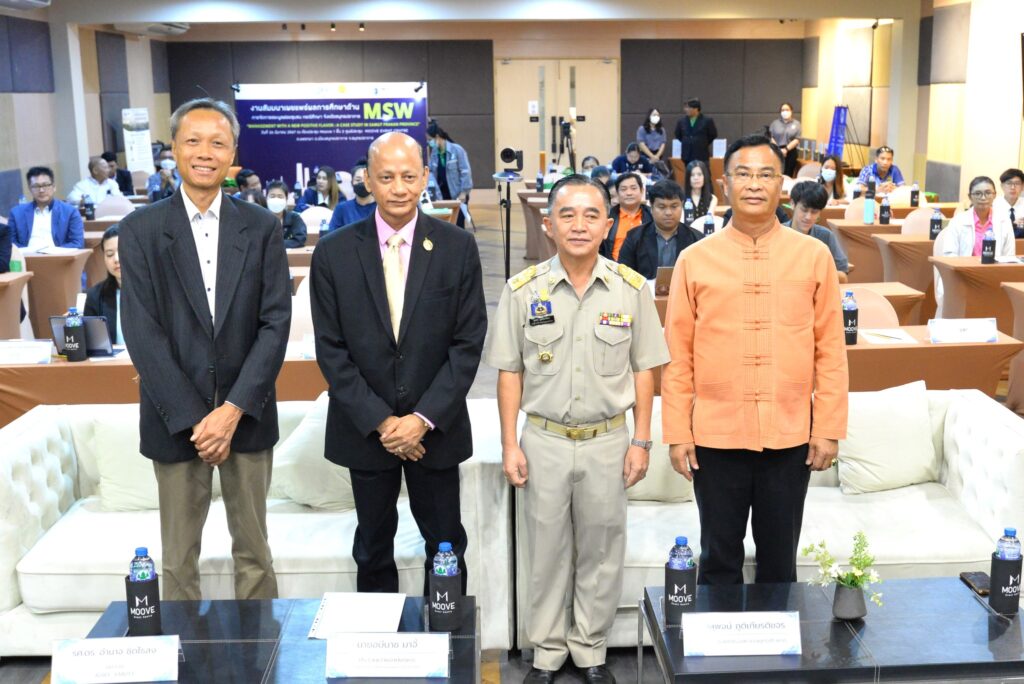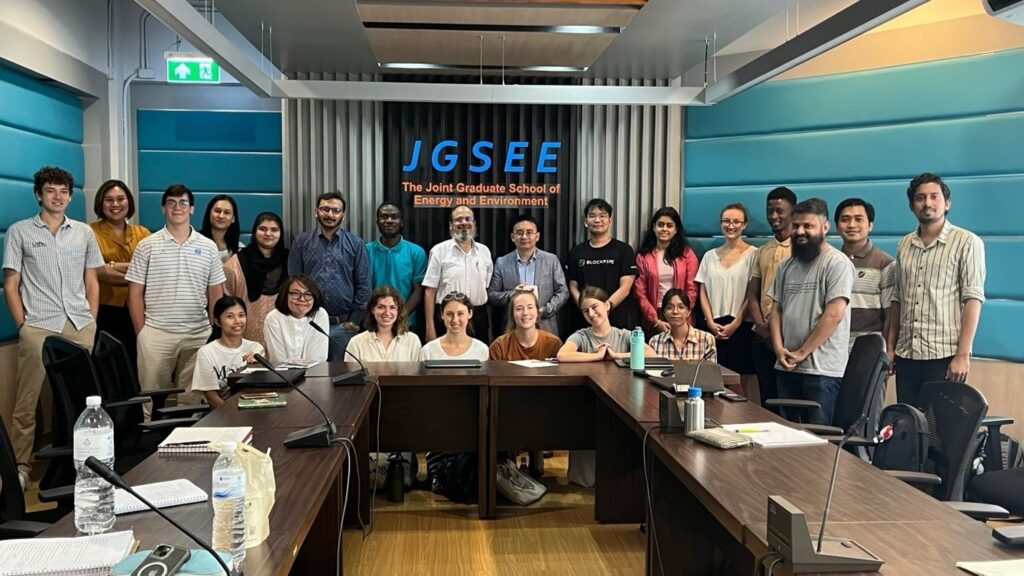Hub Net Zero has formed a strategic collaboration with PharmaFac Group to drive innovation in microalgae-based technologies for carbon capture and the production of high-value biochemicals. Funded by the Program Management Unit for Human Resources & Institutional Development, Research and Innovation (PMU-B), the initiative brings together leading universities, research institutions, and industry expertise to accelerate green innovation and advance Thailand’s Bio-Circular-Green Economy (BCG) agenda.
Microalgae are increasingly recognized as a powerful tool for addressing climate change and advancing green innovation. With their high photosynthetic efficiency, microalgae can convert carbon dioxide and water into oxygen and valuable biochemical compounds such as proteins, lipids, polyunsaturated fatty acids, vitamins, and antioxidants. Unlike traditional crops, they can grow in diverse aquatic environments without requiring arable land or freshwater resources, making them an attractive option for large-scale carbon capture and sustainable production of bio-based products.
Implemented by a consortium of top academic and research institutions, the project aims to unlock this potential through three areas of innovation: engineering algae strains with synthetic biology to boost CO₂ utilization and tolerance for cultivation in challenging environments; developing sustainable cultivation systems that integrate photovoltaics, photobioreactors, and nanobubble technology to enhance efficiency while reducing energy use; and advancing biorefinery processes to produce functional nutrients, microalgal oils, and explore future biofuel applications. Research partners include King Mongkut’s University of Technology Thonburi, Kasetsart University, the National Center for Genetic Engineering and Biotechnology (BIOTEC), Khon Kaen University, Naresuan University, and Mahidol University.
Under this partnership, PharmaFac Group will contribute its nanobubble technology expertise, a key innovation for enhancing microalgae cultivation efficiency. Nanobubbles significantly improve CO₂ delivery in aquatic environments, thereby boosting photosynthetic activity and increasing the yield of valuable biochemical compounds. PharmaFac will also bring its deep industry perspective and experience in bioproduct manufacturing plants, supporting the project’s exploration of high-value bioproducts from microalgae.
This partnership underscores the importance of academia-industry collaboration in addressing global challenges, highlighting how innovation can accelerate Thailand’s journey toward a carbon-neutral economy.


